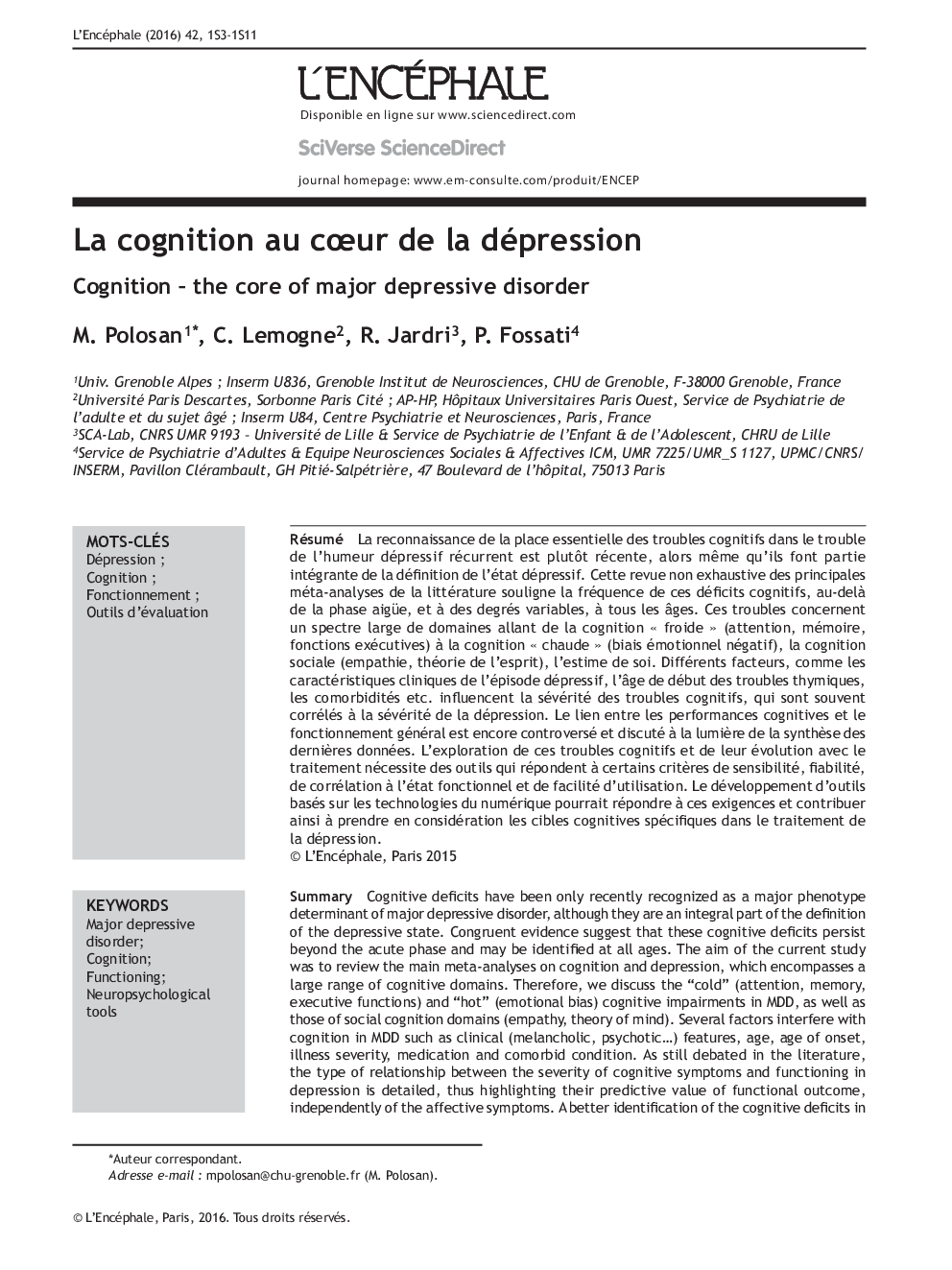| Article ID | Journal | Published Year | Pages | File Type |
|---|---|---|---|---|
| 4181556 | L'Encéphale | 2016 | 9 Pages |
Abstract
Cognitive deficits have been only recently recognized as a major phenotype determinant of major depressive disorder, although they are an integral part of the definition of the depressive state. Congruent evidence suggest that these cognitive deficits persist beyond the acute phase and may be identified at all ages. The aim of the current study was to review the main meta-analyses on cognition and depression, which encompasses a large range of cognitive domains. Therefore, we discuss the “cold” (attention, memory, executive functions) and “hot” (emotional bias) cognitive impairments in MDD, as well as those of social cognition domains (empathy, theory of mind). Several factors interfere with cognition in MDD such as clinical (melancholic, psychoticâ¦) features, age, age of onset, illness severity, medication and comorbid condition. As still debated in the literature, the type of relationship between the severity of cognitive symptoms and functioning in depression is detailed, thus highlighting their predictive value of functional outcome, independently of the affective symptoms. A better identification of the cognitive deficits in MDD and a monitoring of the effects of different treatments require appropriate instruments, which may be developed by taking advantage of the increasing success of computing tools. Overall, current data suggest a core role for different cognitive deficits in MDD, therefore opening new perspectives for optimizing the treatment of depression.
Related Topics
Health Sciences
Medicine and Dentistry
Psychiatry and Mental Health
Authors
M. Polosan, C. Lemogne, R. Jardri, P. Fossati,
